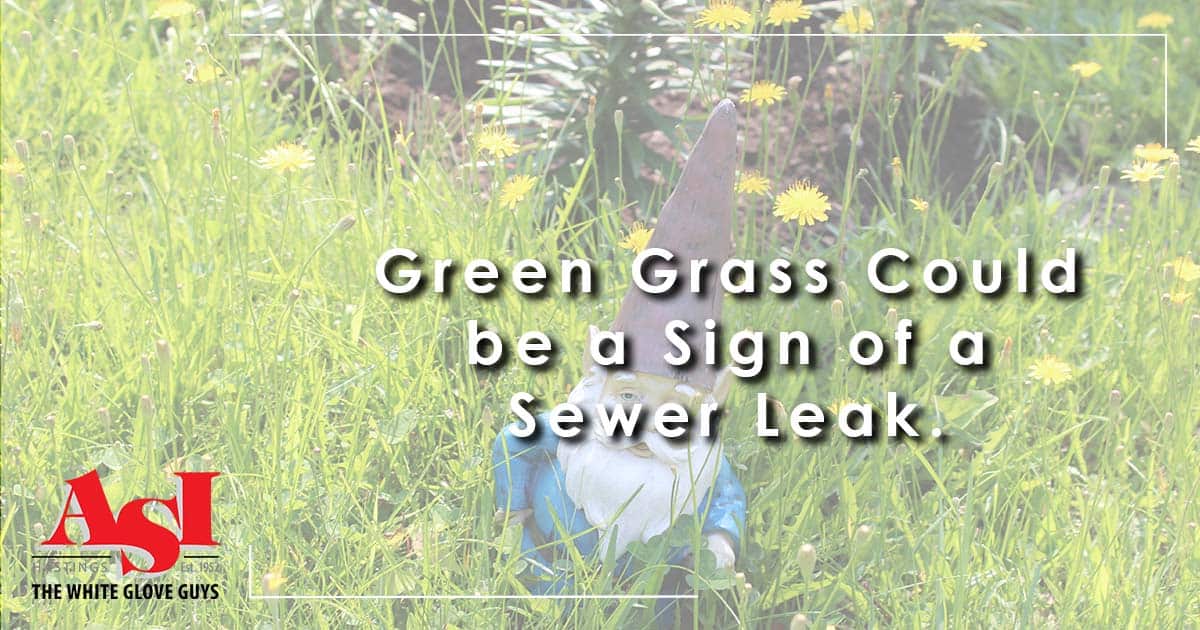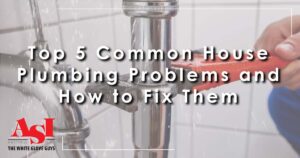Most people view thick and green grass as a good thing, and a lot of the time it is. However, if you’ve noticed that random patches of grass on your lawn are abundantly growing for no reason, especially compared to the surrounding lawn, then it could be a sign of a plumbing issue.
The grass on your lawn becomes green and full during a plumbing leak because it absorbs the excess water. It then grows faster than the surrounding lawn.
Let’s look at the other signs of a plumbing or sewer leak and how to resolve such issues.
Water Main Leak
Water meters are placed in the front yard of a home to determine how much water is being used and give the county access to the line. A pipe then connects the meters to the water main, and in most cases, the water main can be found under the street.
Depending on the leak’s location, the county could end up being responsible for it rather than the homeowner. The county is responsible for a leak if it occurs between the meters and your water main.
The only time the county is not responsible in this case would be if you were not properly maintaining the area near your water meters; it’s your responsibility to keep them clear and accessible.
If a water main leak is occurring on your lawn, you are responsible for it as the owner of the water service line. A plumber will help you each step of the way during your water main leak, including helping you contact any local officials.
Sewer Line Leak
The lateral connection connects a home’s sewer to municipal sewage through the sewage line. If any of these pipes break or crack, you’ll face a pretty smelly problem. Most of the time, you will smell sewage in your yard if there is a leak. But it’s also possible to smell mold or mildew instead.
Sprinkler or Other Landscaping Issues
If your sprinkler line has a break or crack, you will notice pooling water on your lawn even after the sprinklers have stopped.
Sprinkler problems can be repaired on your own, but before digging, you should call 811 to make sure you don’t obstruct any underline utility lines.
The type of soil inside your lawn can have poor drainage, which would also cause pooling issues. Having negative grading on your home is another cause of water pooling.
Any water from rain or other storms would drain away from your foundation at a slope to achieve positive grading.
The roots of trees and bushes are another common cause of pipe breakage. If you have a crack in your pipe, it causes increased humidity which is attractive to plant roots since they need moisture to keep growing.
This can happen with many common types of trees and bushes, such as willow, magnolia, birch, holly, ivy, and boxwood.
Here’s what you can do to avoid pipe obstruction from roots:
- Know where sewer lines are located before you landscape
- Use metal or wood barriers underground next to sewer lines
- Plant trees or shrubs with smaller roots
- Regularly inspect and maintain your sewer lines
Drain clogs are pretty normal on occasion, but if you are dealing with a drain clog regularly, it could indicate that a root has obstructed your pipes.
Increased Water Bill
Naturally, an issue with leaking pipes means that you’ll notice an increase in the costs of your water bill. There are other more common causes of a high water bill, such as a leaky toilet or faucet, so you should examine your home and water usage if you notice a high bill.
If you still cannot find a cause, then take a look at your lawn to determine if there are any wet or lush spots.
Low Water Pressure
Leaks and breaks in pipes will divert the flow of the water, causing your water pressure to drop. Similar to how there are different causes of a high water bill, there are also different causes of low water pressure besides leaky pipes.
The buildup of corrosion or calcium is one such cause. Hiring a plumber to take a look at your water pressure issues will eliminate the guesswork of trying to find the cause yourself.
Once you contact a plumber for assistance, they will give you the information and help that you need during the entire process. A trusted plumber will help you maintain your plumbing to prevent leaks or cracks from happening in the future.







